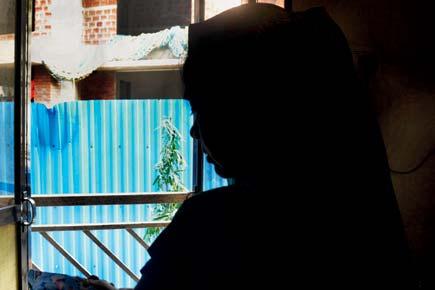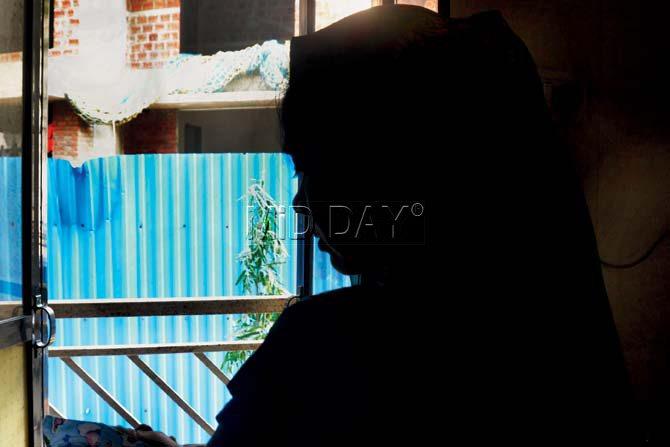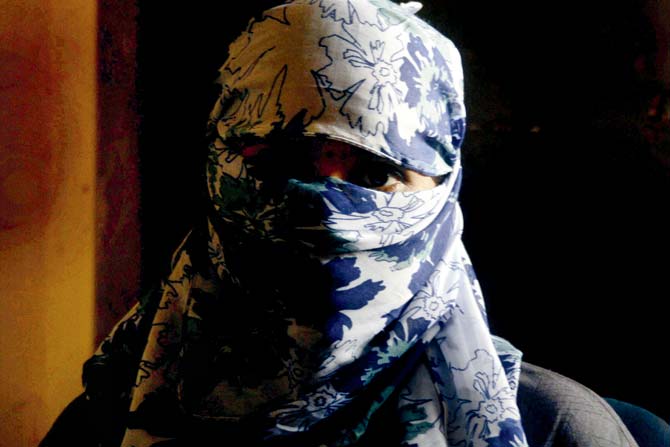Thanks to an effective programme, Prevention of Mother-To-Child Transmission launched in 2014, 1031 HIV+ mothers in Mumbai have given birth to 991 HIV-negative babies in two years


Kavita lost her first child to HIV, but has since gone on to have two healthy kids. Pics/Sneha Kharabe
Hundreds of women across Mumbai are discovering that even though they are HIV-positive that is no reason to be negative about the future. Now, only their babies are negative – HIV-negative, that is. Thanks to an effective programme, Prevention of Mother-To-Child Transmission launched in 2014, over 1,000 infected women have given birth to HIV-negative babies in the past two years, bringing a ray of hope to many couples who want to become parents.
ADVERTISEMENT
Living with HIV (human immunodeficiency virus) is not easy, and it is even harder on couples who dream of becoming parents but fear passing on the virus to their children. But thanks to a new treatment scheme, these couples now have better than 90% chances of giving birth to a perfectly healthy, HIV-negative baby.
Titled ‘Prevention of Mother-To-Child Transmission (PMTCT)’, the scheme was launched in 2014, when the Joint United Nations Programme on HIV/AIDS (UNAIDS) committed to ambitious testing and treatment targets to combat the AIDS epidemic.
The international organisation launched the 90-90-90 scheme in the same year, aiming for 90% early diagnosis, 90% patients on treatment and 90% suppression of virus by the year 2020.
Since the beginning of this programme, a total of 1,031 infected women have given birth, and in 991 cases, the babies were HIV-negative. This means that the babies were untouched by the virus in nine out of ten cases.
“Out of the 1,031 pregnant women with HIV, 90% of them delivered healthy, HIV-negative babies by using proper medication. If they are given treatment at the proper time, we can prevent passing the infection to the babies.
However, it is essential to take the medicines on time,” said Dr Srikala Acharya, director of Maharashtra State Aids Control Society (MSACS), which provided the figures.
Couples come forward
Following the success rate, and as awareness grows among people, many HIV-infected couples have finally gained the confidence to fulfil their dream of having children. “We are receiving several HIV-infected couples who want to have children. It is a big success against HIV,” said Acharya, adding that it also helps that the number of HIV-positive patients is also gradually falling, so fewer and fewer mothers are now infected. According to figures from MSACS, the number of HIV-infected mothers has gone down by 50% in the past five years.
Hardly child’s play
But the programme comes with its own challenges, and the biggest one is keeping track of the pregnant women. If they stop their medication midway or don’t follow a strict schedule with the medicines or check-ups at the treatment centres, the whole thing can fall to pieces.
“We hold regular counselling for the pregnant women who come to our centres so that they continue to take the medicine without any gap. But many times, they don’t show up at the centres and we have to keep track of them. In such cases, our field workers go to their houses to convince them to stick to the regime,” said Sunita Bhosale, a social worker at the Anti-Retroviral Treatment (ART) centre in KEM Hospital.
The field workers go to the patients’ houses and check their medicine intake. They also keep tabs on new mothers, as breastfeeding can also pass on HIV. “We provide the mothers with vouchers to buy milk powder. We then collect these vouchers from the vendors to check if the mothers are buying milk and not breastfeeding the babies. We pay the vendors directly,” said Poonam Patkar, project director at Committed Communities Development Trust, an NGO working for HIV-infected mothers and children. But there’s no doubt their efforts are paying off. As Patkar said, “These new guidelines under the 90-90-90 scheme has worked wonders in controlling infection among mothers and their infants.”
Life-changing experience
Anita (name changed) was just 17 years old when her gave her hand in marriage to a man who was HIV-positive. But Anita was kept in the dark for six months, until she too fell prey to the virus. She divorced her husband, and he eventually succumbed to the infection few years later.

But Anita’s life took a beautiful turn when her childhood friend proposed to her. After turning him down several times, she finally agreed to the marriage and, in 2014, she gave birth to their first child who was born HIV-negative. After the delivery, her husband was also tested for HIV, but was found negative.
“I was scared at the thought of having a child. First, I considered in-vitro fertilisation (IVF) but my husband didn’t agree. I was really scared that he would get infected during sex. So, we consulted HIV experts, followed their instructions and got our first child,” said Anita, who is now 28 years old.
“I wasn’t under anti-retroviral treatment until I was pregnant. I took one medicine regularly and 72 hours before my delivery, they gave me a medicine that doesn’t allow the virus to pass on to the child.”
‘New hope in my life’
Kavita (32) had already experienced the pain of losing her first child to HIV when he was just a year old in 2005. That was when she found out that her husband had been carrying the virus but never informed her, thus exposing both her and their child. A year later, disaster struck again, and her husband also succumbed to the infection.
In 2010, she married an infected man through the HIV marriage bureau and two years later, she gave birth to their daughter, born HIV-negative. Again, in July, she gave birth to a son, who is also HIV-negative.
“During my pregnancy, I continued with the ART treatment that helps in controlling the virus and doesn’t infect the foetus. I used to take the medicine twice a day. C-section also decreased the chances of passing on the virus. Now, both my children are HIV-negative, which has added new hope in my life,” she said.
 Subscribe today by clicking the link and stay updated with the latest news!" Click here!
Subscribe today by clicking the link and stay updated with the latest news!" Click here!







